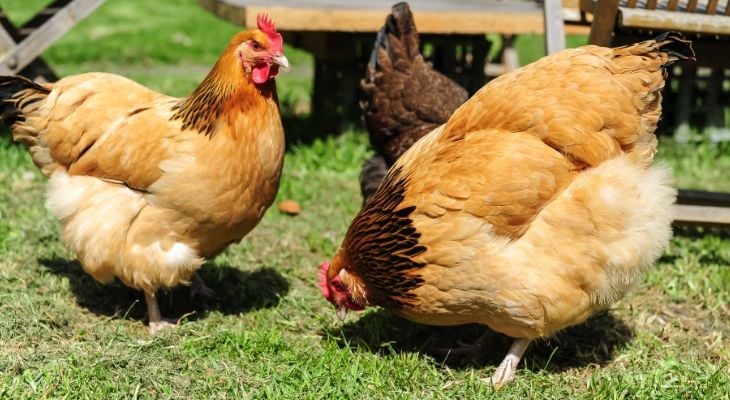
Choosing a Pet Chicken
Maybe, you want the luxury of freshly laid eggs. Maybe, you think chickens are interesting animals and would make good pets. Before you rush out and purchase a coop and chicken feed, you should understand what's entailed in keeping them healthy and safe.
General Information
Make sure you look into the regulations of your area before you get chickens. You may only be able to have hens because roosters make too much noise. There might also be limits as to how many chickens you can have.
General Chicken Care
Each day, your chicken will need fresh water and food. You should evaluate the water dish to make sure the dish is clean and doesn't have any slime accumulation around the bowl. Your chicken really doesn't want to drink dirty water and will go without water if the dish is too dirty. This can lead to dehydration, so make sure you clean the dish with soap and water each day.
Your chicken will also need food each day. You should purchase chicken feed. Your chicken will also like to eat fruits and vegetables, such as lettuce, blueberries, and strawberries. These make great treats and are a way to not waste food.
When you visit your chicken each day, take notice of your chicken's feathers; they should look smooth. Observe your chicken's eyes; they should look clear.
Getting a Coop
When it comes to getting a coop, your options are limitless, especially if you choose to build it yourself. There aren't many rules to follow when it comes to chicken coops. You want to make sure the coop is completely fenced around the entire perimeter to prevent escapees. When creating nesting spaces, you want a one-foot-by-one-foot space per chicken for a nesting box. It may help to just buy a pre-designed coop. Additionally, keep in mind that you can only build a structure like that so close to the property line between your house and your neighbor's house.
In terms of maintenance, you'll want to keep your chicken coop clean. Make sure you clean out all feathers and debris from the coop regularly. Use a cat litter scooper to clean up droppings. A natural disinfectant like vinegar and water is safe to clean out the coop, including their nesting boxes.
Overall, having a chicken is a rewarding experience, especially when you opt to get it as a chick and get to watch it grow up. The process of keeping a chicken happy and healthy is extensive, though, so make sure you know what you're getting into.
